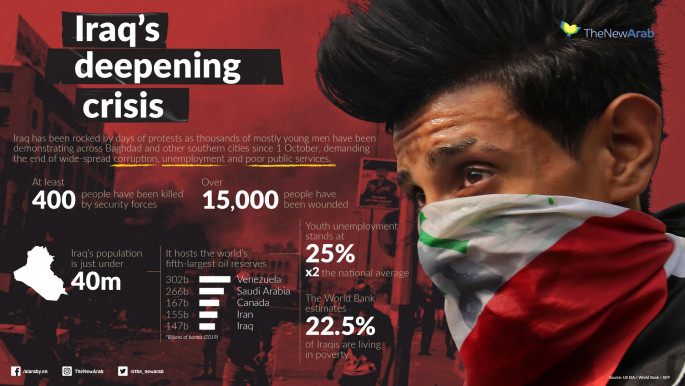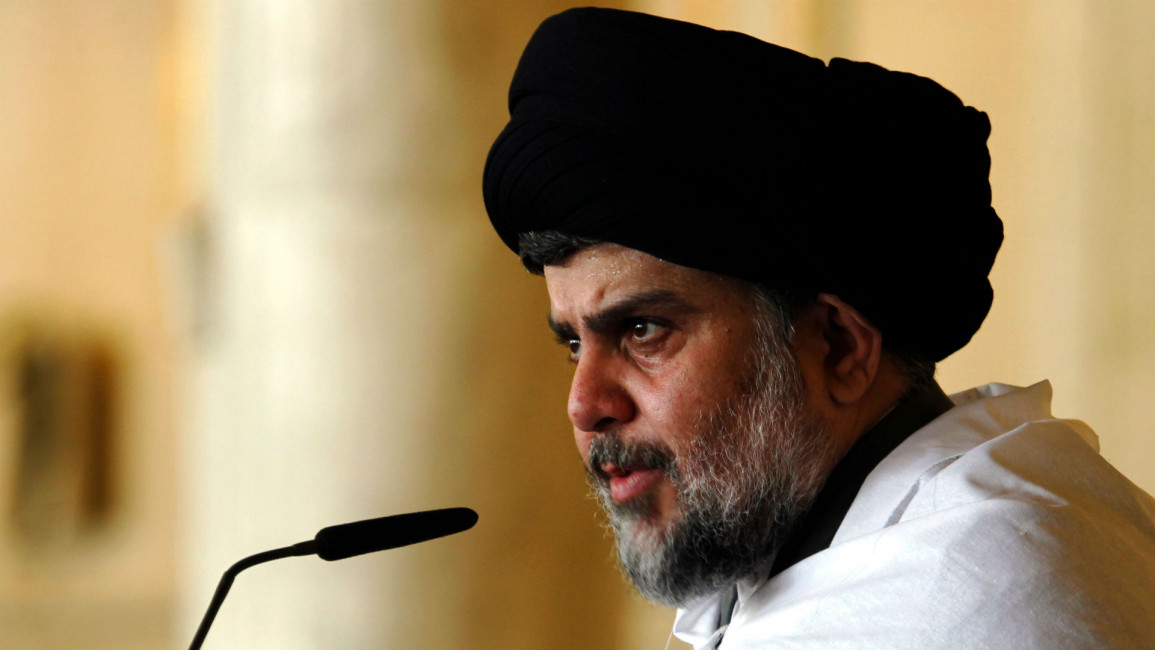Armed drone 'drops bomb' on home of Iraq cleric Moqtada al-Sadr
Since the beginning of the revolution, the firebrand cleric and ex-militia leader has spearheaded demands for Prime Minister Adel Abdel Mahdi’s resignation and urged early elections.
He also tweeted in support of the initial six-day wave of protests that rocked the country at the start of October.
Protests erupted in the capital Baghdad and across Iraq's Shia-majority south in early October against endemic corruption, economic mismanagement and poor public services, since growing to demand the ousting of the government accused of being beholden to foreign powers.
The attack came hours after Sadr sent his supporters into the streets of the capital overnight to "protect protesters" after unidentified gunmen attacked a protest camp.
Authorities on Saturday confirmed the death toll from the attack had increased to 17, though this did little to deter thousands of Iraqi protesters who defiantly took to the streets of the capital and city’s across the country’s south the next morning.
Many of the new arrivals were suspected to be members of Saraya al-Salam (Peace Brigades), the paramilitary group headed by Sadr.
 |
A source within Saraya told AFP one of its own members had died in the overnight clash, and that more unarmed members had been sent to Tahrir "to protect protesters.”
Around 440 people have died and 20,000 have been wounded since anti-government rallies erupted on October 1 in Baghdad and the Shia-majority south.
Read more: Kidnappings, killings and threats: Inside Iraq's authoritarian turn
Last week, Iraq’s Sairoon political party, of which Sadr is the chief, called on authorities to try leading members of the Iraqi government who took part in the brutal suppression and killing of protesters in recent weeks.
Sabah Al-Saadi, an MP in Sadr's political party, on Sunday urged the judiciary to form a court specialised in what he dubbed the "October Revolution" to hold to account the outgoing prime minister and security leaders for the violent crackdown on demonstrators across the country.
The Iraqi Council of Representatives "accepted today the resignation of the prime minister... however, this does not relieve him and his government of accountability for massacres committed against the people," a statement by the bloc read on Sunday.
Article 83 of the constitution stipulates that "the responsibility is shared between the prime minister and his government, all of whom must be held to account for their crimes", the statement added.
"The people re awaiting justice against criminals who shed Iraqi blood, especially in Dhi Qar," the statement noted, referring to the scene of a recent brutal crackdown on protesters.
The bloc also called for a travel ban on prime minister and senior security officials.
The remarks came just hours after the bloc waived its right to appoint the next prime minister, after the resignation of former Prime Minister Adel Abdul Mahdi, noting the decision falls into the hands of the people.
Sadr's Sairoon bloc won the largest share of parliament's 329 seats in a vote last year. It gained popular support due to Sadr's Iraqi nationalist, anti-corruption and anti-sectarian platform, condemning both US and Iranian meddling in the country's politics.
Follow us on Twitter and Instagram to stay connected



